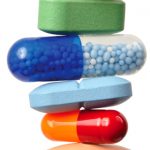NEW YORK (Reuters Health)—Abaloparatide appears to be a safe and effective drug for increasing bone mineral density (BMD) in women 80 and older, new research shows.
The study is a post hoc analysis of the Abaloparatide Comparator Trial in Vertebral Endpoints (ACTIVE) trial, which found patients who received abaloparatide subcutaneously for 18 months had increased BMD and a lower risk of fractures compared with those on placebo.
Given “controversy” about the effectiveness and safety of treatments in the oldest old, Dr. Gary Hattersley of Radius Health, Inc. and colleagues performed a subgroup analysis in study participants 80 and older. Radius Health, which makes abaloparatide, funded the study.
There were 51 women 80 or older on abaloparatide, and 43 on placebo. Mean age was about 82 for both groups. Patients on active treatment had a 3.9% increase in total hip BMD, a 3.6% increase at the femoral neck and a 12.1% increase at the lumbar spine compared with those on placebo, similar to the effects seen in study participants at large.
The oldest women also had a numerical decline in vertebral and nonvertebral fractures compared to placebo that was similar to the overall ACTIVE group. “Tolerability and safety were also similar in the very elderly cohort versus the entire ACTIVE cohort,” the researchers write in Menopause, online February 16.
They conclude: “These findings are consistent with efficacy of abaloparatide in the very elderly comparable to that of the general older population.”
Dr. Hattersley was not available for an interview by press time.
Reference
- McClung MR, Harvey NC, Fitzpatrick LA, et al. Effects of abaloparatide on bone mineral density and risk of fracture in postmenopausal womenaged 80 years or older with osteoporosis. Menopause. 2018 Feb 16. [Epub ahead of print]

